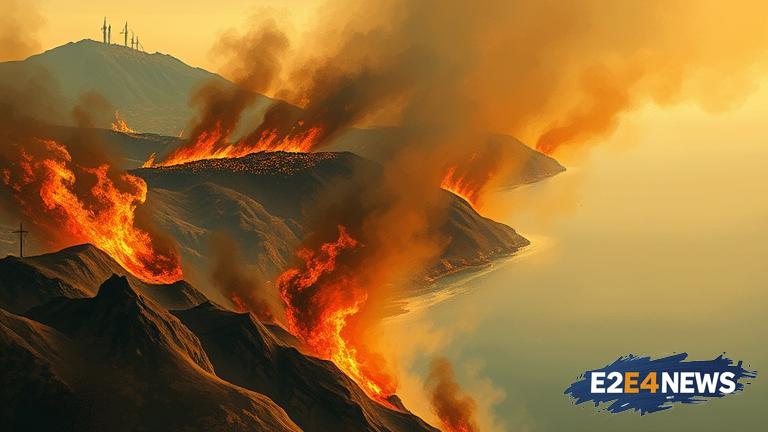The Mediterranean region has been plagued by wildfires for centuries, with many countries in the area experiencing significant blazes in recent years. However, the prevailing narrative that climate change is the main culprit behind these fires has been called into question by some experts. A historical analysis of wildfires in the region reveals that while climate change may play a role, it is not the sole or even primary driver of these events. In fact, human activities such as land use changes, agricultural practices, and arson have been identified as major contributors to the spread of wildfires in the Mediterranean. Furthermore, the region’s unique geography and climate, characterized by hot and dry summers, have always made it prone to wildfires. The history of wildfires in the Mediterranean dates back to ancient times, with evidence of significant fires found in the region’s archaeological records. For example, the ancient Greeks and Romans wrote about devastating wildfires that swept through the region, causing widespread destruction and loss of life. In more recent times, the 1980s and 1990s saw a significant increase in wildfires in the Mediterranean, with countries such as Greece, Turkey, and Spain experiencing major blazes. However, this increase was largely attributed to human activities such as land use changes and agricultural practices, rather than climate change. In fact, a study published in the journal Environmental Research Letters found that the main drivers of wildfires in the Mediterranean are human-related, including land use changes, agricultural practices, and arson. The study also found that climate change has a relatively minor impact on the spread of wildfires in the region. Another study published in the Journal of Environmental Management found that the frequency and severity of wildfires in the Mediterranean are more closely linked to human activities such as land use changes and agricultural practices than to climate change. The study also noted that the region’s unique geography and climate make it prone to wildfires, regardless of climate change. In addition, the Mediterranean region has experienced a number of significant wildfires in recent years, including the 2018 Attica wildfires in Greece, which killed over 100 people and destroyed thousands of homes. However, an investigation into the cause of the fires found that they were largely the result of human activities, including arson and land use changes. Similarly, the 2020 wildfires in Turkey were found to have been caused by a combination of human activities and natural factors, including strong winds and hot weather. The Turkish government has since implemented a number of measures to prevent and mitigate the impact of wildfires, including the creation of fire breaks and the implementation of stricter land use regulations. In Spain, the government has also implemented a number of measures to prevent and mitigate the impact of wildfires, including the creation of a national wildfire prevention plan and the implementation of stricter land use regulations. The plan includes measures such as the creation of fire breaks, the implementation of stricter land use regulations, and the promotion of sustainable land use practices. The Spanish government has also established a number of wildfire prevention and mitigation programs, including a national wildfire prevention program and a number of regional programs. These programs include measures such as the creation of fire breaks, the implementation of stricter land use regulations, and the promotion of sustainable land use practices. In conclusion, while climate change may play a role in the spread of wildfires in the Mediterranean, it is not the sole or even primary driver of these events. Human activities such as land use changes, agricultural practices, and arson have been identified as major contributors to the spread of wildfires in the region. The history of wildfires in the Mediterranean dates back to ancient times, and the region’s unique geography and climate have always made it prone to wildfires. Therefore, it is essential to take a nuanced approach to addressing the issue of wildfires in the Mediterranean, one that takes into account the complex interplay of human and natural factors that contribute to these events.
